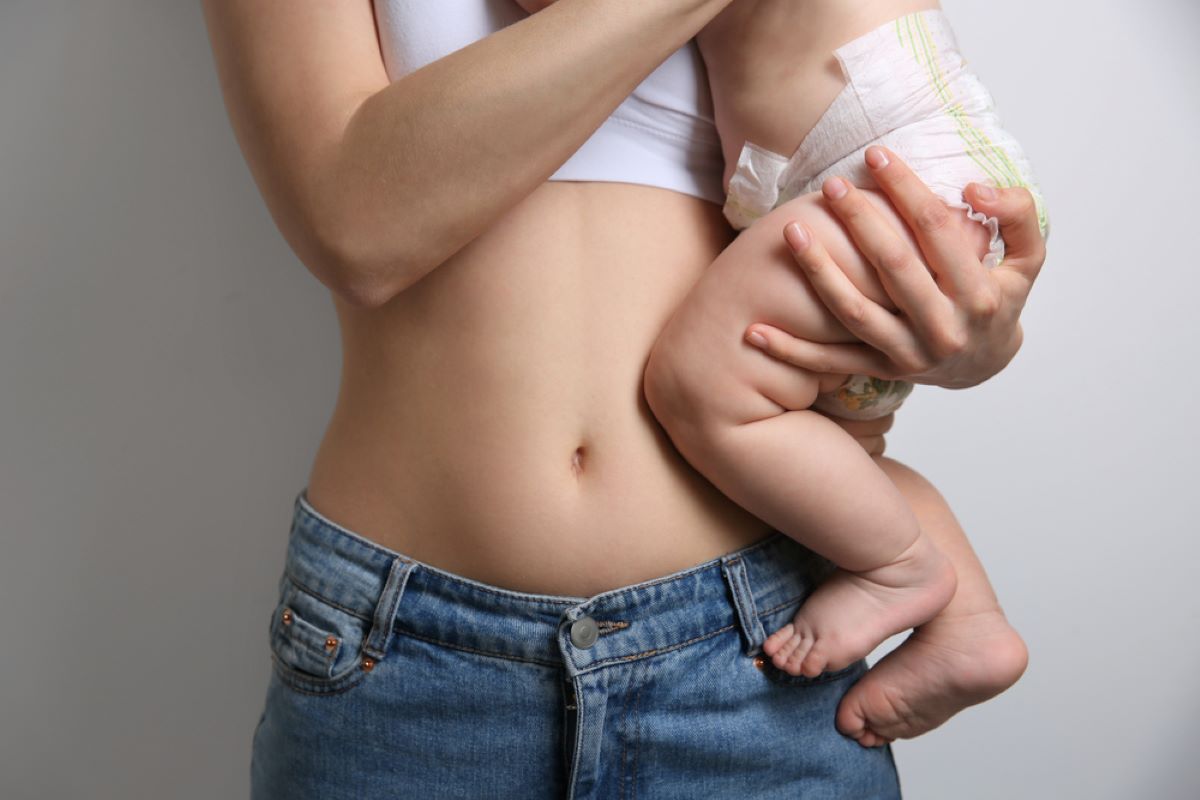Are you aware that you can develop lactose intolerance after pregnancy?
Women experience a wide variety of changes throughout pregnancy. Whether they’re greeted with a few stretch marks that refuse to fade once the pregnancy’s over or they’re bestowed bigger breasts that keep on fluctuating during the breastfeeding period, women are aware of the changes that might occur.
Morning nausea, fatigue, tummy aches, brown patches scattered across your face, and swelling of your feet, ankles, and even your nose, are the common symptoms you expect to experience when you’re pregnant.
Stretch marks, perineum soreness, afterpains, and breast tenderness are what you’re prepared to go through when the pregnancy’s over. Chances are, though, you don’t anticipate developing conditions you’ve never dealt with before pregnancy.
Contrary to the popular belief, pregnancy can cause your body to react differently to foods you consumed without problems beforehand. Because of that, pregnancy can cause you to develop food-related intolerances such as lactose intolerance.
What’s lactose intolerance, or LI? LI stands for a condition that occurs when your body loses the ability to break down lactose, a type of sugar typically found within milk and dairy products. Women that suffer from LI don’t produce enough lactase, an enzyme that breaks down lactose.
When lactose doesn’t get processed the right way, your body reacts by sending you an array of unpleasant symptoms such as nausea, diarrhea, bloating, and vomiting.
When you notice these symptoms after pregnancy, you should schedule an appointment with your doctor because there’s a chance you might be developing lactose intolerance. For the time being, we’re bringing you everything you need to know about this condition and its appearance after pregnancy.
What are the causes of lactose intolerance after pregnancy?

Now, we already mentioned that lactose intolerance occurs when your body doesn’t produce enough lactase to break down the lactose that dairy products contain.
But, what happens during pregnancy that makes your body go from breaking down lactose without a problem to struggling to process even the tiniest amount of milk you drink with your coffee? Before you argue otherwise, there’s a chance you’ve been mildly lactose intolerant the entire time.
Symptoms of lactose intolerance aren’t the same for everyone. Some women might take a bite of cheesecake and spend the rest of the day on the toilet, but others might drink an entire Pumpkin Spice Latte, burp, and move on with their day. So, pregnancy might have triggered your symptoms to become much more prominent.
There is also a chance that you developed lactose intolerance after pregnancy even though you’ve never experienced any symptoms beforehand. When you’re pregnant, your immune system becomes weaker to prevent you from fighting off the fetus.
Additionally, when your body becomes immune-suppressed, you start reacting differently or not reacting at all to allergens and triggers.
Once your body restores the immune system after the pregnancy, you pretty much start searching for things to react to. Because of that, numerous women develop allergies, sensitivities, and intolerances they didn’t experience before the pregnancy.
What are the symptoms of lactose intolerance after pregnancy?

How can you be sure whether or not you’ve developed lactose intolerance after pregnancy? Maybe you’ve been experiencing digestive problems for the past few weeks or even months and you haven’t been able to figure out what’s causing them.
Perhaps you’ve been getting nauseous after munching on cheese sticks or chocolate cookies. Whatever the case might be, the best way to figure out what’s going on with your digestive system after pregnancy seems to be to observe the symptoms.
However, don’t forget to eat something that’s made with milk, cheese, or other dairy products to ensure that you’re indeed experiencing the symptoms because of your body’s inability to break down the lactose within those products.
By the way, some of the most common symptoms of lactose intolerance are tummy aches, cramps, nausea, bloating, vomiting, and diarrhea. Schedule an appointment with your doctor the moment that you notice these symptoms to ensure that they’re related to lactose intolerance.
What are you supposed to do when you notice the symptoms of lactose intolerance?
Now, your doctor might suggest doing a lactose intolerance test or a hydrogen breath test to check whether your lactase levels are low or whether your hydrogen levels are high (another way to detect lactose intolerance).
1. Lactose tolerance test
Lactose tolerance tests measure the glucose within your blood after you’ve drank a special liquid that contains lactose.
Doctors prefer lactose tolerance tests because they’re a great way to determine whether your body’s capable of breaking down lactose.
During this test, your doctor’s going to take numerous samples of blood from your veins before and after you drink the lactose liquid.
Depending on whether or not you’re lactose intolerant, your body might or may not create glucose once you start breaking down and processing lactose.
2. Hydrogen breath test

Hydrogen breath tests, on the other hand, measure the amount of hydrogen you exhale after you drink the lactose liquid. Doctors may prefer hydrogen breath tests because they’re easier and quicker to take than lactose tolerance tests.
Depending on whether or not you’re lactose intolerant, you may or may not breathe out more hydrogen than expected. High levels of hydrogen mean that you aren’t breaking down and processing the lactose you drank beforehand. However, hydrogen breath tests determine other common GI conditions, too.
What are other explanations for digestive problems you might experience after pregnancy?
“Hmm, but what if I’m not lactose intolerant? Why have I been experiencing the symptoms of lactose intolerance after pregnancy, then?”
At times, the symptoms you’re experiencing are similar to the symptoms of other GI conditions that may appear after pregnancy. Actually, some of the most common health niggles that women experience after pregnancy share the same symptoms. Hemorrhoids, constipation, diarrhea, and afterpains are some of them.
We also can’t forget that there’s a chance you may not be suffering from any condition at all. After you experience something as extreme as pregnancy, you’re bound to go through a period of adapting to your new body, as well as your body settling down and returning to the previous state.
1. Hemorrhoids
After pregnancy and birth, numerous women develop hemorrhoids. Hemorrhoids are extremely uncomfortable, throbbing, burning swellings that appear around your nether regions (for lack of a better word).
Hemorrhoids are known to cause swelling, itching, and bleeding around the area where they’re situated, but there are times when they cause nausea, vomiting, and diarrhea, too. Thankfully, they can be treated with hydrocortisone creams and suppositories.
Additionally, you might need to drink more water and eat more fiber.
2. Postpartum constipation

Postpartum constipation’s another condition you might experience after pregnancy and birth. Constipation’s pretty straightforward which means you shouldn’t confuse the symptoms of constipation with the symptoms of lactose intolerance.
But, when you suffer from constipation over a period of time, there’s a chance you might end up getting nauseous after eating or even getting an urge to throw up.
Bloating, farting, and cramps are common with constipation, too, and that’s why you and your doctor might have a hard time figuring out whether you’re allergic to something or trying to get your digestive tract back on track.
3. Postpartum diarrhea
Postpartum diarrhea’s common among women who stretch or tear when they’re giving birth. Granted that you’re one of the women who went through that, there’s a chance you might need a few weeks or months to resume regular bowel movements.
Postpartum diarrhea causes symptoms such as nausea, bloating, farting, burping, and cramps. When the doctors diagnose you with stretching, tearing, and postpartum diarrhea, you might need to start pelvic floor therapy ASAP and you might need to resort to supplements and medication.
We suggest taking things slow and going easy on your body.
4. Afterpains
After pregnancy and birth, your uterus contracts, changes, and shrinks back which can cause a tremendous amount of discomfort. Afterpains are the lower abdominal cramps you experience after giving birth.
Afterpains are the worst during the first week, and they’re supposed to become better as your uterus returns to its pre-pregnancy state. Also, afterpains often come with nausea, bloating, and vomiting, too.
Actually, you might be under even more stress when you start breastfeeding because nursing stimulates the release of oxytocin which triggers the contractions of the uterus.
At the end of the day, your body goes through too many changes after delivering a baby that you shouldn’t be surprised if you and your doctor mistake postpartum pains for lactose intolerance.
5. Hormones

We come to the end of the article with hormones, the bane of our existence.
Hormones are known to affect pretty much everything, from our blood pressure, metabolism, and health to the way we think or act on a regular. Hormones affect your digestive system, too, and there’s a chance that you might be experiencing nausea, vomiting, and diarrhea after pregnancy because of your hormones.
We suggest scheduling an appointment with your doctor and focusing on nurturing your baby, healing your health, and allowing your body to go back to normal. Good luck!
